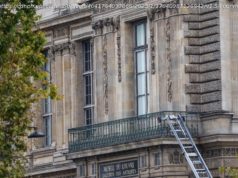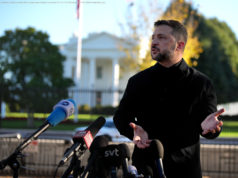Was President Trump’s travel ban too broad? Did it amount to a ‘Muslim ban’? Is it the courts’ place to second-guess the president? This and other questions were among those that the Supreme Court contended with.
Update June 26,2018: In a 5-to-4 vote, the Supreme Court ruled that President Trump acted lawfully in imposing limits on travel from several predominantly Muslims nations. [ Read our coverage of the decision that is a major statement on presidential power.]
The Supreme Court in April heard arguments on President Trump’s third travel ban — perhaps the most contentious case they’ll hear this term.
The case, Trump v. Hawaii, No. 17-965, was argued for the Trump administration by Noel J. Francisco, the solicitor general, and for the state of Hawaii by Neal K. Katyal. The full transcript is available here.
What follows is a selection of some of the questions the justices grappled with.
Mr. Francisco insisted that the details of immigration policy were for the president to decide.
This colorful and provocative question from Justice Kagan cut to the heart of the case. How much deference is owed a president who harbors illegitimate motives for what may be an otherwise permissible policy?
Mr. Francisco gave a forthright answer to what he called a very hard question from Justice Kagan.
The administration says the latest travel ban was the result of careful study. Justice Sotomayor pointed out that the underlying report has not been made public.
Mr. Francisco responded that the administration had provided a great deal of information about the basis for the latest travel ban and was entitled to considerable deference.
Mr. Francisco said that members of an administration would violate the Constitution by aiding a president in promulgating a discriminatory policy.
Mr. Francisco urged the justices to ignore Mr. Trump’s campaign statements. The oath of office transformed Mr. Trump, his lawyer said.
Had the administration really wanted to ban Muslims, Mr. Francisco said, it could have done a much better job.
Justice Alito said that the travel ban did not do a very good job of excluding Muslims.
Mr. Katyal, representing the challengers, stressed what he said was the unusual breadth of the travel ban.
Justice Kennedy seemed skeptical that courts had a role to play in second-guessing the president’s national-security determinations.
Chief Justice Roberts wanted to know whether Mr. Trump was forever disabled from issuing orders concerning immigration.
Chief Justice Roberts elicits a concession: that Mr. Trump could immunize his travel ban from constitutional challenges by disavowing his earlier statements about banning Muslims.
Mr. Francisco said that Mr. Trump had already effectively disclaimed his earlier statements about banning Muslims.






